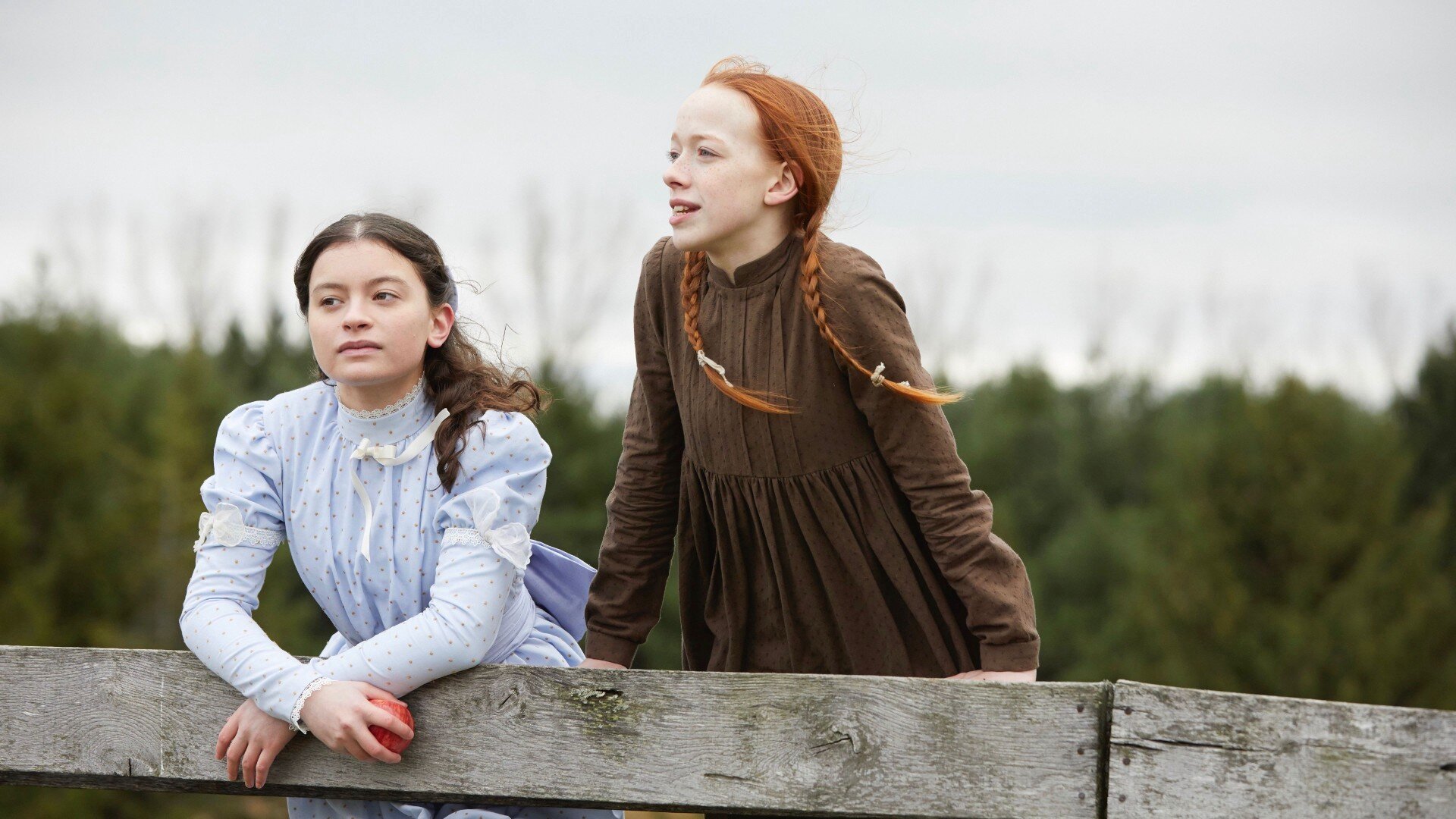Anne and Diana face new adventures this season
Netflix has gone trigger happy lately on the cancellation button, and their new favorite thing seems to be three seasons and you’re done. The latest victim on that chopping block is the CBC’s Anne With an E, a strange yet helplessly endearing little show that I could never stop watching. And such a shame that it’s over now, because Season 3 was by far the show’s best season and I was eagerly looking forward to the next. Alas.
In the third season, the show wisely did away with outsiders (nothing like those awful con men prospectors from last year) and focused simply on Avonlea itself and its residents. I call it a strange show, because it is a bit of an oddball concoction, with a tone that tends to veer all over the place, but nevertheless, it wears its heart on its sleeve proudly and the actors are happily energetic and seem jazzed just to be participating in the proceedings. That includes Anne herself most of all, still played fervently (and divisively) by Amybeth McNulty, who has such a way with flowery language that you simply believe all the outlandish things she says and emotions she professes. She also seems transplanted from a modern world somehow (yet no one in modern times would speak like her either), and so her fiery tantrums and emotional bombast are occasionally polarizing, but she’s such a unique presence onscreen that it’s always endeared me to her.
This season she spent time trying to find out her family lineage (no simple task in 1890’s Canada), and the show finally built up to the culmination of her romance with Glibert (Lucas Jade Zumann), not wasting too much screen time on the traditional will they/won’t they, as this version of Anne recognizes much earlier than the one from the books (which this series resembles pretty much in character names only) that he is indeed her true love. The show also gives Gilbert an older love interest for a brief time as he wonders if Anne doesn’t return his feelings, but that plot line is one of the odd storylines that doesn’t work and is there simply to serve up suspense for Anne and Gilbert (why would this older woman want to marry a teenage boy with no money?).
In a big change from the books, Diana gets a romance with Jerry
The other townsfolk are also served well this season, as Dalmar Abuzeid makes Bash into a surprisingly effective and moving character this year, believably suffering the sudden death of his wife Mary (which was much sadder than it had any right to be, considering we knew Mary only briefly) and becoming a single father, and bringing his mother from Jamaica to Avonlea, as the two clash over how black people should behave in the presence of whites and the way she raised him in Jamaica. The show has always wanted to write storylines about diversity, feminism, and LGBT rights into a period setting where the main characters are white, and it hasn’t always been successful or organically incorporated, but this time Bash feels like such a fully realized character that the storylines involving him feel much more natural than last season when he was introduced. I’m not sure the other storyline involving the Native American tribe and the abduction of one of the children into a state school that imprisons and converts them works as well, but at least the show didn’t pull punches with it and ended it on a surprisingly downbeat note.
Feminism rears its head as well, as it always has, with Anne realizing Josie Pye was assaulted by a boy, and though the discussion of a lot of these issues is in no way period accurate and leads to modern pronouncements from characters like Miss Stacy, Marilla and even Rachel Lynde (who resembles her book counterpart in no possible way yet is played very amusingly and cheerfully by Corrine Koslo), these anachronistic tendencies service the show’s unique tone and it remains exceedingly watchable by existing in its own alternate history universe. People don’t really want to go back in time, especially if you’re a woman or a person of color- but this version of Avonlea is the place you’d want to be if you had to.
Grade: B+
Anne and Gilbert have the audacity to get together right as Netflix cancels the show- can someone else please pick it up?




